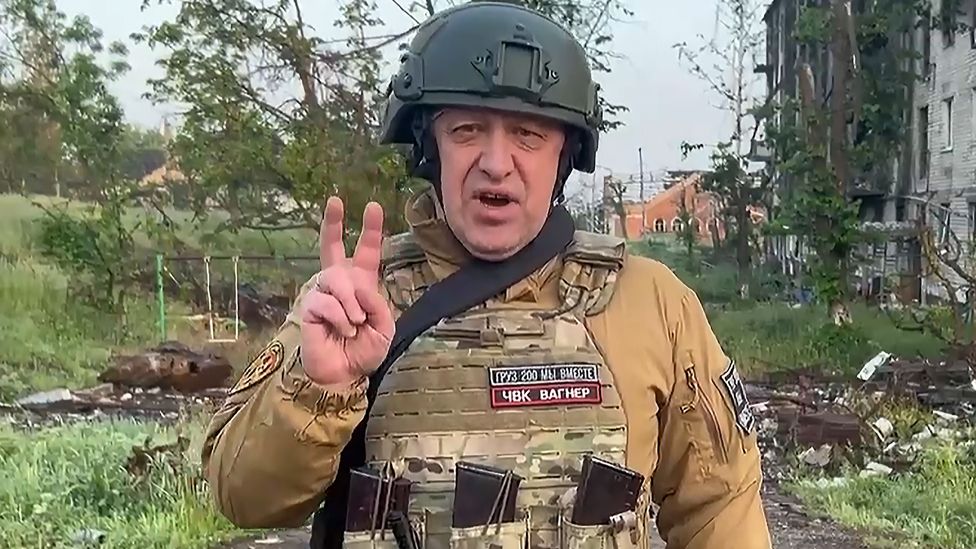
Ever since the abortive coup, speculation had been that Yevgeny Prigozhin could be living on borrowed time.
When the head of the notorious Wagner group launched his historic uprising, inflicting the biggest crisis of Vladimir Putin’s 23-year reign, many were left wondering how the Russian leader would respond.
During the mutiny, Prigozhin’s band of mercenaries shot down at least two helicopters and killed about 15 Russian service personnel, many of them airmen. More significantly for Putin, Prigozhin’s rebellion, which reached the outskirts of Moscow, exposed the fragility of a regime many deemed to be stable.
The cause of the crash on Wednesday, which killed all 10 people on board – Prigozhin listed among them, officials said – was not immediately clear, but the Wagner leader’s longstanding feud with the military and the armed uprising he led in June would give the Russian state ample motive for revenge.
Putin does not suffer betrayal gladly and is known to divide those who oppose him into two categories: enemies and traitors. Prigozhin’s uprising undoubtedly placed him in the second category.
But Putin’s initial response to the mutiny left many puzzled. Despite promising to “liquidate the traitor” in a televised address to the nation, Putin allowed Prigozhin to strike a deal with Belarus’s Alexander Lukashenko and leave Russia for exile.
Unusually, weeks after the mutiny, the Kremlin said Putin had a three-hour meeting with Prigozhin and Wagner group commanders days after the rebellion.
Putin also remarkably admitted that he sought and failed during the meeting to have Prigozhin replaced as the leader of Wagner’s fighters in Ukraine.
Having initially left for Belarus, where his Wagner troops set up camp and trained local security forces, Prigozhin was seen moving freely back and forth between Moscow and his home town of St Petersburg, reportedly picking up stacks of cash and gold bars that he held at his opulent mansions.
Not much later, Prigozhin was spotted on the sidelines of a major Russia-Africa summit in St Petersburg, where he met African officials at a hotel that he owned.
Those who knew Prigozhin were not surprised, believing that the warlord at some point would probably pick up the tab for his foray into revolutionary politics. A former restaurant tycoon turned mercenary leader, Prigozhin has always been a risk-taker, and was not one to sit in exile in Belarus while his mercenary army was dismantled.
Attempting to explain Putin’s timid behaviour, analysts argued that the Russian leader, who had not previously faced dissent from the ultra-nationalist flank, was looking to pacify rather than destroy his former ally.
But Prigozhin’s brazen conduct left many in the elite wondering whether Putin still held control over the country, according to western officials.
“For a lot of Russians watching this, used to this image of Putin as the arbiter of order, the question was, ‘Does the emperor have no clothes?’ Or at least, ‘Why is it taking so long for him to get dressed?’” CIA director William Burns said earlier this month.
Prigozhin was last seen earlier this week when he released a video in which he claimed to be in Africa, where his mercenaries have relocated since the abortive uprising. But it was unclear when it was taken and whether he had returned to Russia since it was shot.





















